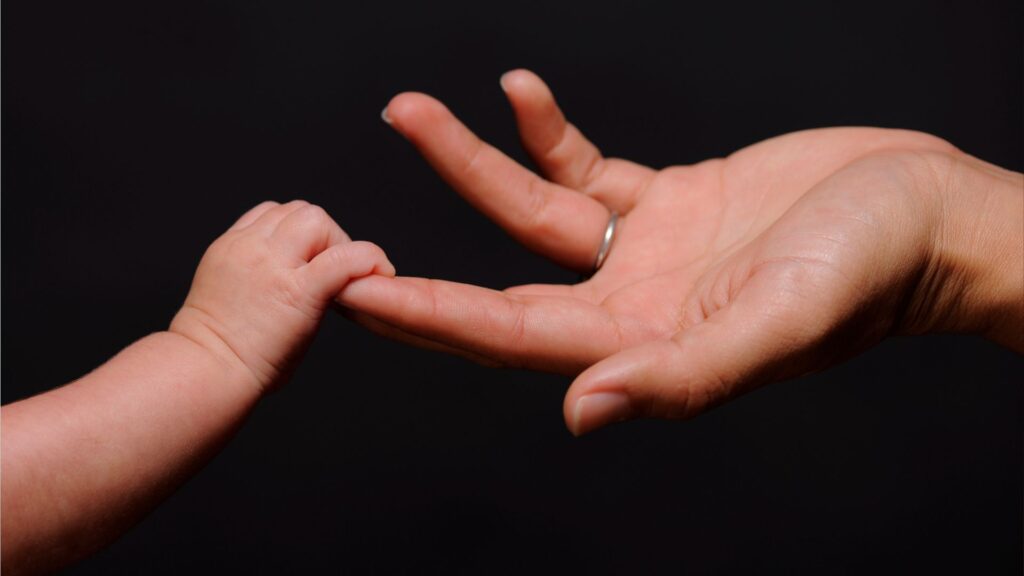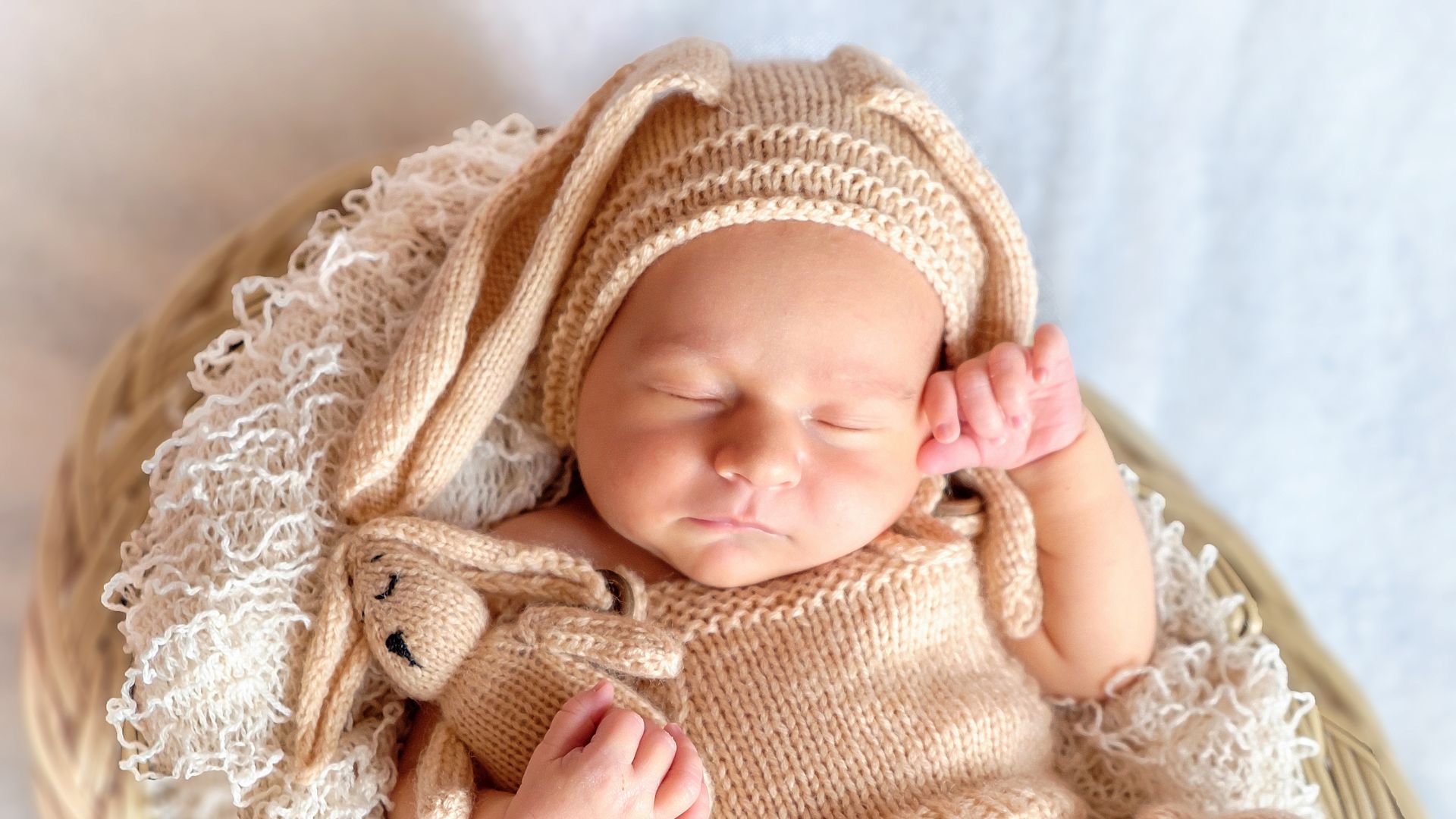Ah, the newborn stage – how long is the newborn stage? A magical and challenging time when your tiny bundle of joy seems to change and grow with every blink. As new parents, it can be overwhelming trying to navigate this whirlwind of emotions and adjustments. But fear not! With the right information and guidance, you can conquer this phase like a pro.
In this blog post, I’ll provide you with insights into the newborn stage, its milestones, and how to transition into the infant stage. I’ll also share some newborn essentials and helpful tips for navigating this exciting time in your baby’s life. So buckle up, and let’s dive into the wonderful world of newborns and discover how long is the newborn stage!
Short Summary
- The newborn stage (also called the neonatal stage) is an important 4-week period full of growth, development, and bonding.
- Babies are highly dependent on their caregivers during this time as they reach physical, motor & social milestones.
- Parents should have the right clothes, diapers & baby carriers to make navigating the newborn stage easier with tips for sleep strategies and diapering hygiene.
Defining the Newborn Stage

The newborn stage is the initial period of a baby’s life, characterized by rapid growth, development, and adaptation to the world outside the womb. This phase is crucial for both the baby and the parents, as they learn to bond, care for, and understand their new family member. The first few weeks of a baby’s life can be both thrilling and exhausting, filled with new experiences and challenges that will shape the child’s development and your parenting journey.
The newborn stage begins right after birth and lasts for about 4 weeks, marking the newborn stage end. It might seem like a simple question, yet many parents find themselves pondering this as they watch their tiny human transform before their eyes. Let’s take a closer look at the age range and characteristics that define the newborn stage.
Age Range for Newborns
Newborns are generally considered to be babies under 4 weeks old. During this important stage in a baby’s life, they experience rapid growth and development, as well as numerous sleep and feeding adjustments. In their first week, a newborn should get around 16-18 hours of sleep each day, with this amount slightly decreasing to 14-16 hours by 2-6 weeks old.
Diaper changes also occur frequently during the newborn stage, with a general recommendation of changing diapers every 2-3 hours. As your baby grows and reaches toddler age, the frequency of diaper changes may decrease. Remember to fold down the diaper’s front to avoid rubbing against the healing umbilical cord stump, and always keep the diaper area clean and dry.
Characteristics of Newborn Babies
Newborn babies are highly dependent on their caregivers, as their motor skills are still developing and they spend most of their time sleeping and feeding. In these early days, babies can’t do much apart from crying and snoozing. But as they grow and the newborn stage ends, they start to develop more skills and abilities, such as holding up their head, showing reflexes, and exploring their environment.
During the newborn stage, your baby will typically nurse every 2-3 hours, consuming about 4-5 ounces of milk every 3-4 hours for breastfed babies, and slightly less frequent feedings for formula-fed babies. Common feeding struggles include difficulty latching or finding a comfortable position. To ensure your baby’s comfort and safety while sleeping, you might consider using a baby swaddler or following recommended swaddling techniques.
Developmental Milestones in the Newborn Phase

During the newborn phase, as your baby develops, they will achieve various developmental milestones that will set the foundation for their future growth and learning. These milestones encompass physical growth, motor skills development, and social-emotional development. It’s essential to be aware of these milestones and support your baby’s progress through appropriate care, interaction, and stimulation.
Some developmental milestones may be more noticeable than others, but each one is an important step in your baby’s journey. Let’s delve deeper into the physical and social-emotional milestones that your baby will experience during this fascinating phase of their life.
Physical Milestones
Physical milestones in the newborn stage include gaining head control, developing reflexes, and beginning to explore their surroundings. During the first few months, your baby will gain the ability to lift their head and chest while lying on their tummy. They will also exhibit reflexes such as sucking and moving their head to the side.
By around two months, your little one may start putting their hands to their mouth and cooing, signaling their growing curiosity and engagement with the world around them. These physical milestones are crucial to your baby’s overall development and should be celebrated as they are achieved.
Social and Emotional Milestones
Social and emotional milestones involve your baby responding to caregivers, making eye contact, and expressing emotions through facial expressions and sounds. In the first few months, your baby will begin to form social smiles, interact with people in a playful way, and respond positively to touch. They will also start to show a preference for certain people and toys, imitate sounds and gestures, and cry when their parent leaves.
These social and emotional milestones are essential for your baby’s development, as they lay the foundation for future relationships and emotional well-being. As a parent, it’s crucial to support and nurture these milestones by engaging with your baby, providing love and attention, and offering a secure and stimulating environment.
Transition from Newborn to Infant Stage

The transition from the newborn to the infant stage is marked by changes in baby ages, developmental indicators, and parenting challenges. At around 2-3 months old, your baby will start to exhibit increased motor skills, social interactions, and cognitive abilities – signaling their entrance into the infant stage. As your baby grows and develops, your parenting journey will also evolve, with new challenges and experiences emerging.
Understanding and preparing for this transition is essential for both your baby’s development and your own well-being as a parent. In the following sections, we will discuss the age and developmental indicators that mark this transition, as well as the changes in parenting challenges that you may encounter.
Age and Developmental Indicators
Babies typically enter the infant stage around 2-3 months old, displaying increased motor skills, social interactions, and cognitive abilities. By this age, your baby will likely have gained head control, developed reflexes, and started exploring their environment. They may also begin to exhibit social and emotional milestones, such as responding to caregivers, making eye contact, and expressing emotions.
In addition to these developmental indicators, your baby’s physical growth during this period is also a key marker of their transition into the infant stage. For example, they may have doubled their birth weight and started to show an interest in solid foods. As a parent, it’s essential to be aware of these indicators and support your baby’s development through age-appropriate activities and care.
Changes in Parenting Challenges
As your baby grows and develops, you will face new challenges as a parent. Some of these challenges include:
- Introducing solid foods
- Managing changing sleep patterns
- Encouraging age-appropriate activities to support your child’s development
- Baby-proofing your home to ensure their safety
- Constantly keeping an eye on their safety due to increased mobility and curiosity
It’s important to embrace these new challenges with patience and adaptability, seeking guidance from your pediatrician or other experienced parents when needed. Remember, every baby is unique, and their developmental journey may not follow a strict timeline. Stay attuned to your baby’s needs and trust your instincts as you navigate this exciting new stage together.
Newborn Essentials: Clothes, Diapers, and Carriers

Newborn essentials are items that parents need to accommodate their baby’s rapid growth and changing needs during the newborn stage. These essentials include appropriately sized clothes, diapers, and baby carriers, which can make the newborn stage more manageable and enjoyable for both you and your baby.
In this section, we will discuss the importance of choosing the right newborn clothes and diapers, as well as the various baby carrier options available to ensure your baby’s comfort and safety during this critical stage of their life.
Newborn Clothes and Diapers
Newborn clothes and diapers should be comfortable and easy to change, as many babies outgrow them within the first month or two. When selecting newborn clothes, look for items that are easy to put on and take off, comfortable to wear, and easy to wash. To accommodate your baby’s rapid growth, it’s essential to dress them in multiple layers and adjust clothing sizes as needed.
When it comes to diapers, it’s important to choose ones that are specially sized for your baby’s age and weight. Newborn diapers should be changed about every 2-3 hours, ensuring proper hygiene and care for your baby’s delicate skin. As your baby grows older and requires fewer diaper changes, you may need to adjust the diaper size accordingly.
Baby Carrier Options
Choosing the right baby carrier is crucial for your baby’s comfort and safety during the newborn stage. Baby carriers should be selected based on your baby’s age, weight, and developmental stage, with options available for both newborns and older infants. Some popular carrier options include the Embrace newborn carrier, the Ergobaby Omni Breeze and Omni Dream carriers, and the Tushbaby hip seat carrier.
Each carrier option offers unique features and benefits, such as breathability, softness, and support for both parents and babies. It’s essential to research and compare different carriers to find the one that best meets your baby’s needs and your own preferences.
Remember, a comfortable and secure carrier, such as an infant car seat, can make all the difference in your baby-wearing experience during the newborn stage!
Tips for Navigating the Newborn Stage

Navigating the newborn stage can be challenging, but with the right strategies and support, you can ease the transition for both you and your baby. In this section, we’ll share some practical tips for managing sleep, feeding, and diapering during the newborn stage. These tips can help you establish routines, foster healthy habits, and create a nurturing environment for your baby’s growth and development.
From sleep strategies to feeding routines and diapering tips, our goal is to provide you with the knowledge and confidence you need to embrace the newborn stage and create a strong foundation for your baby’s future. So let’s dive into these tips and start your journey as a new parent on the right foot!
Sleep Strategies
Establishing a consistent sleep routine, using swaddling techniques, and creating a safe sleep environment can help promote healthy sleep habits for your newborn. Here are some tips to consider.
- Establish a regular sleep schedule to help your baby understand the difference between day and night.
- Use swaddling techniques to provide comfort and security, ensuring longer stretches of sleep.
- Create a safe sleep environment by removing any potential hazards from the crib and ensuring a comfortable temperature.
By following these tips, you can help your newborn develop healthy sleep habits as your baby sleeps.
Creating a safe sleep environment is crucial for your baby’s well-being. Ensure that your baby always sleeps on their back, day and night, and that their crib is free of any soft objects or loose bedding. With these sleep strategies in place, both you and your baby can enjoy more restful and rejuvenating sleep during the newborn stage.
Feeding and Diapering Tips
Feeding and diapering tips include following recommended feeding schedules, monitoring diaper changes, and ensuring proper hygiene and care for the baby’s delicate skin. For newborns, it’s recommended to feed them every 2-3 hours or 8-12 times in 24 hours. As your baby grows and develops, their feeding needs may change, so it’s essential to stay attuned to their hunger cues and adjust accordingly.
When it comes to diapering, here are some tips to keep in mind:
- Check for wetness and soiled diapers regularly and change them at least at every feeding. This will help you monitor your baby’s diaper changes and ensure their comfort and cleanliness.
- Always wipe the baby clean from front to back to prevent any infections.
- Avoid pulling the foreskin back when cleaning the penis, as this can cause discomfort and potential injury.
By following these feeding and diapering tips, you can help ensure a smooth and comfortable newborn stage for both you and your active baby.
Summary
In conclusion, the newborn stage is a critical and transformative period in your baby’s life, marked by rapid growth, development, and adaptation to their new environment. By understanding the characteristics, milestones, and transitions of this stage, you can better support your baby’s progress and foster a nurturing environment for their future growth.
We hope that our insights and tips on newborn essentials, developmental milestones, and navigating the newborn stage have provided you with the knowledge and confidence to embrace this incredible journey as a new parent. Remember, every baby is unique, and their developmental journey may not follow a strict timeline. Stay attuned to your baby’s needs, trust your instincts, and cherish every precious moment in this magical stage of life.
Frequently Asked Questions
How long is the newborn period?
The newborn period lasts 28 days, from the time of birth up to 4 weeks after. During this time, baby’s changes and growth can be very rapid.
Parents should pay close attention to ensure the health and safety of the newborn.
What is the hardest stage with newborn?
The first three months with a newborn can be extremely difficult. As a sleep-deprived parent, you may feel overwhelmed and unsure of yourself. Don’t worry – this is totally normal!
At this stage, learning to read your baby’s cues will help you both adjust to your new lives together. Bonding with your baby is key – the more responsive you are, the more secure your baby will feel.
Is a 3 month old a newborn?
Yes, a 3 month old baby can be referred to as a newborn. Generally speaking, newborns are defined as babies up to 28 days old or even up to 2-3 months of age, according to experts.
At 3 months of age, your baby is still in this stage of development and qualifies as a newborn.
What are some common characteristics of newborn babies?
It’s amazing how quickly newborns adapt and grow! They are highly dependent on their caregivers, have limited motor skills, and spend most of their time sleeping and feeding.
When should I introduce solid foods to my baby?
It’s generally recommended to wait until 4 to 6 months before introducing solid foods to your baby. This is when their body is ready to accept and process new types of food.
Hi – I’m Alina and I am a soon to be mom going through the journey of becoming a parent. I am a writer at heart and I love sharing about pregnancy tips and other busy mom hacks.
